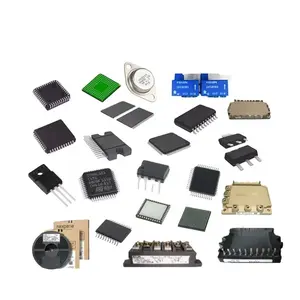
Mustar Provide Bom List Service Electronic Components Integrated Circuits IC Chips Diodes Transistors Capacitors Etc


U2 USB Ic 1612A1 For IPhone 8 Plus 8G 8+ 8plus Charging Charger 1612 U6300 56pin Control Chip Ic Parts























Integrated circuits (ICs) designed specifically for battery management play a crucial role in modern electronics, with the battery charging IC being a pivotal component. These ICs are engineered to manage the power flow, ensuring batteries charge efficiently and safely. The market offers a diverse range of ICs catering to various charging needs, from simple single-cell applications to complex multi-cell configurations.
The types of battery charging ICs vary, including standalone ICs, multi-function power management ICs, and module ICs. Each type serves different applications, from portable consumer electronics like smartphones and laptops to industrial and medical equipment. The selection of an IC is determined by the specific requirements of the application, such as the type of battery (Li-Ion, NiMH, etc.), the number of cells, and the desired charging rate.
A battery charging IC typically incorporates features such as temperature monitoring, voltage regulation, and safety protocols to prevent overcharging. These ICs are constructed using semiconductor materials that ensure reliability and efficiency. Advanced ICs may also include smart features like charge status indicators and communication with the host device to optimize charging cycles.
Employing dedicated battery charging ICs in device design offers several advantages. They can significantly extend battery life, enhance safety with built-in protection features, and improve the user experience by reducing charging times. Moreover, their integration can lead to more compact and lightweight designs, which is critical for portable devices.
When selecting a battery charging IC, it is essential to consider the charging current capability, the number of cells it can manage, the accuracy of its voltage and current regulation, and its compatibility with the battery chemistry. The IC's power efficiency and operating temperature range are also vital factors that can impact the performance and longevity of the end product.
Manufacturers of battery charging ICs are increasingly focusing on environmental sustainability, ensuring that their products comply with international regulations such as RoHS and REACH. These compliance measures guarantee that the ICs are free from harmful substances, contributing to the eco-friendliness of the final consumer products.